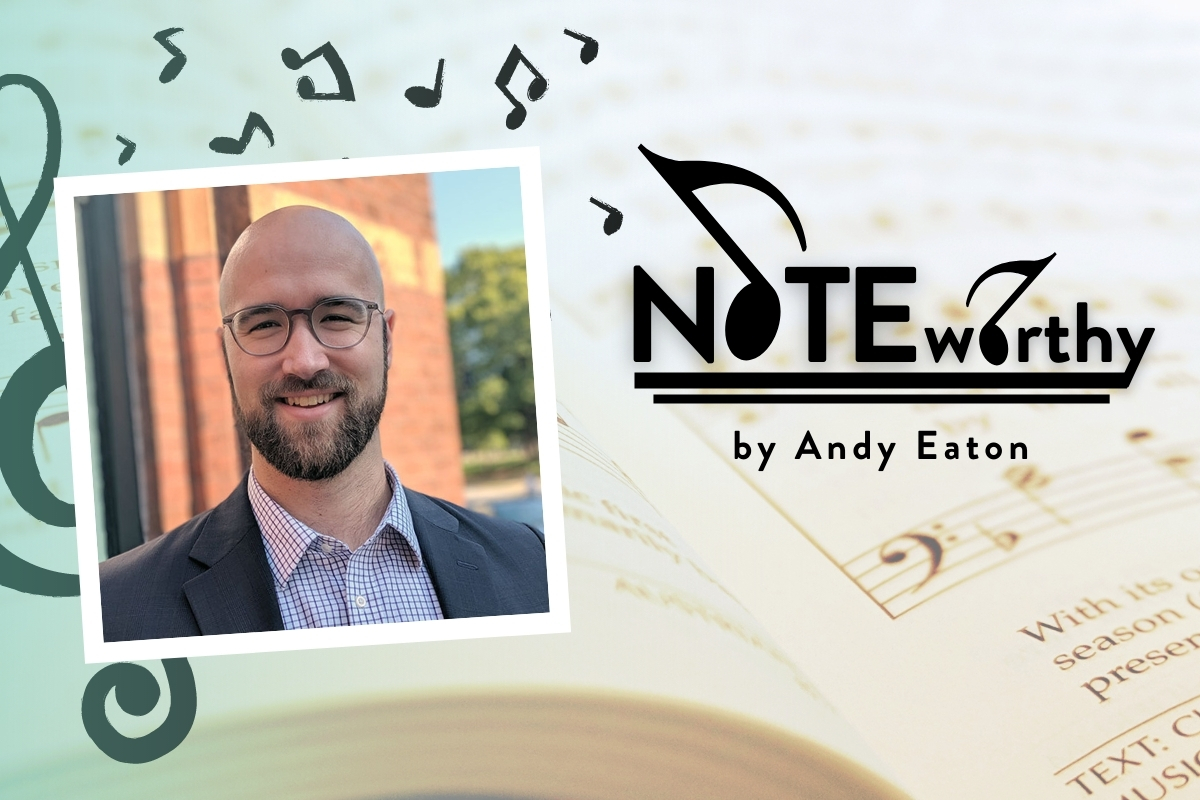“And the Swallow” by Caroline Shaw
How beloved is your dwelling place, O Lord of Hosts.
My soul longs and faints,
My heart and my flesh sing out.The sparrow found a house
And the swallow a nest
Where she may raise her young.They pass through the valley of Baca
They make it a place of springs;
The autumn rains also cover it with pools.
Adapted from Psalm 84
If you’re looking to name drop a choral conductor which would show them that you know your stuff about the world of choral avant-garde music (a strange situation, I acknowledge), mention the name of North Carolina native Caroline Shaw and you will be in. A majority of Caroline Shaw’s music is…polarizing, to say the least. It is music written for musicians, insofar as it is marvelously creative, challenging music, but not always easy listening. In fact, this piece, though not her best known work, is perhaps her most palatable for an audience not interested in extended vocal techniques (In case you are one of those people whose interest was piqued by that introduction, give her Pulitzer Prize winning Partita for 8 voices a listen).
This piece was written as a part of a larger commission project put on by the Lincoln Center in 2017. The idea was to, in combination with many ensembles across the globe, perform all 150 Psalms, each one written by a different composer. Some of the psalms performed were ancient, some, like this one, written especially for the occasion. The finished concert series was 12 hours long.
This psalm struck me today because of its marvelous focus on home. In fact, the composer herself says of the psalm, “I really identified with [Psalm 84] because it has to do with finding a home and finding a refuge and a place and sort of celebrating this sense of safety, but also there’s a yearning for a home that feels very relevant today.”
I have to chuckle to myself reading her statement, because it is clearly from 2017 and not 2021. And yet, here in 2021, finding home is as relevant as ever, even though you would assume we had all found it by now with all the time we’ve spent indoors.
In the unadapted version of Psalm 84, the third verse says that the swallow finds a nest for herself “at your altars, O Lord of Hosts.” My initial reading of that text takes it metaphorically, but I wonder if a more straightforward reading tells us more about the nature of God?
I imagine the psalm writer visiting an altar of God. Perhaps an altar made by the Jews in the desert, rarely visited. It’s a little worse for wear, maybe even dilapidated, and there, in this place once full of such seriousness, holiness, weight – is a bird’s nest, and a swallow just hanging out.
If a swallow were to literally make a nest in a holy place today, I think the gut reaction would be to get rid of it. We may do it gingerly, and we may find a nice new home for that swallow’s family, but certainly we would all agree that a bird’s nest has no place at an altar of God.
However, this author, encountered with this exact circumstance, rather than seeing a sanctum desecrated by nature’s inevitable acquisition of this holy place, sees something different.
The altar is still serving its purpose.
If our lives are the altar upon which we worship God, in our ministry to others the call is not to be clean, tidy, prim and proper. The altar of our lives is not measured by its order or its neatness. The power of our altar is in how we make people feel loved, safe, and at home. Even if that is a little messy.
I will show my love to the one I called ‘Not my loved one.’
I will say to those called ‘Not my people,’ ‘You are my people’;
and they will say, ‘You are my God.’”
Hosea 2:23b
On hearing this, Jesus said to them, “It is not the healthy who need a doctor, but the sick. I have not come to call the righteous, but sinners.”
Mark 2:17
Andy Eaton
Director of Music
First Presbyterian Church

